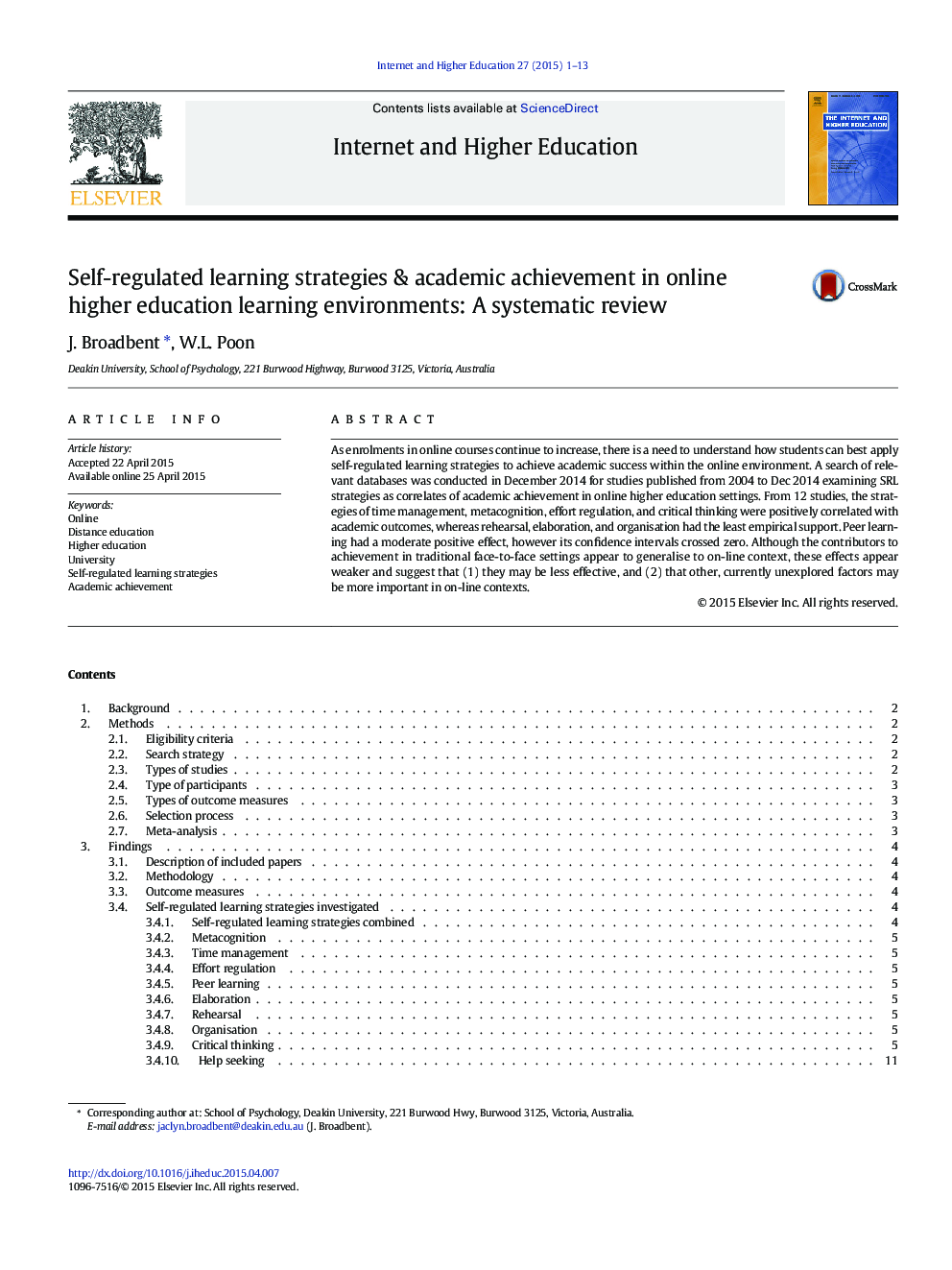| کد مقاله | کد نشریه | سال انتشار | مقاله انگلیسی | نسخه تمام متن |
|---|---|---|---|---|
| 357723 | 619945 | 2015 | 13 صفحه PDF | دانلود رایگان |
• Time management, metacognition, effort regulation & critical thinking predicted grade.
• Rehearsal, elaboration and organisation were not related to online grade.
• Peer learning should be prioritised in the context of online learning.
• SRL strategy effects are weaker in the online context than in the traditional classroom.
As enrolments in online courses continue to increase, there is a need to understand how students can best apply self-regulated learning strategies to achieve academic success within the online environment. A search of relevant databases was conducted in December 2014 for studies published from 2004 to Dec 2014 examining SRL strategies as correlates of academic achievement in online higher education settings. From 12 studies, the strategies of time management, metacognition, effort regulation, and critical thinking were positively correlated with academic outcomes, whereas rehearsal, elaboration, and organisation had the least empirical support. Peer learning had a moderate positive effect, however its confidence intervals crossed zero. Although the contributors to achievement in traditional face-to-face settings appear to generalise to on-line context, these effects appear weaker and suggest that (1) they may be less effective, and (2) that other, currently unexplored factors may be more important in on-line contexts.
Journal: The Internet and Higher Education - Volume 27, October 2015, Pages 1–13
